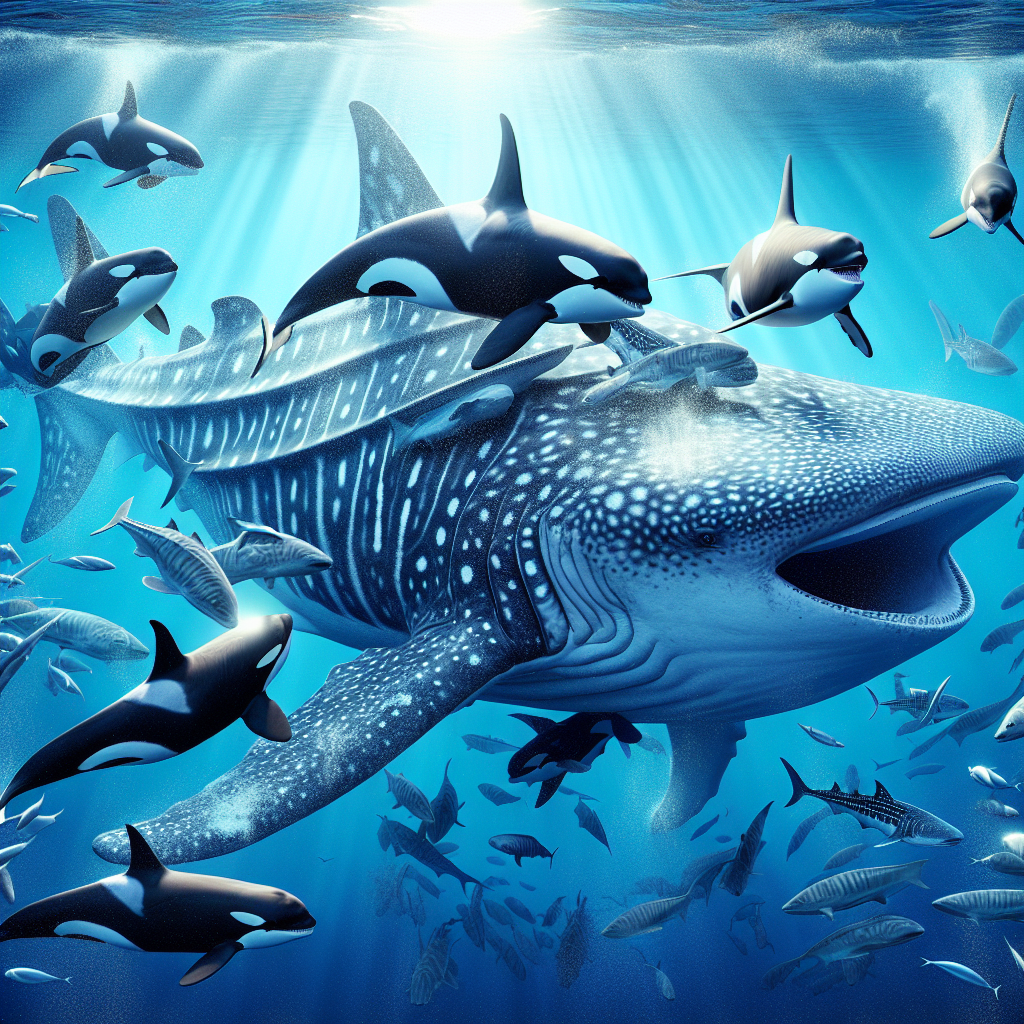
Orcas Now Hunting Whale Sharks: A New Underwater Predator Dynamic
Orcas, some of the ocean’s most intelligent predators, have recently displayed a new behavior that both fascinates and alarms marine scientists: hunting whale sharks solely for their nutrient-rich livers. This newly observed predation tactic not only illustrates the orcas’ cunning intelligence but also opens up intriguing questions about the evolving dynamics of oceanic food chains.
The Fascination with Orcas
Orcas have long captivated human interest due to their complex social structures and remarkable hunting strategies. They are known for their versatility in diet, feasting on a vast array of sea creatures. With their latest focus on whale sharks, orcas have demonstrated once again why they are the apex predators of the sea.
Understanding the Whale Shark
Whale sharks, at nearly 60 feet in length, hold the title of the world’s largest fish. Despite their intimidating size, these gentle giants pose no threat to humans, subsisting mainly on small fish, crustaceans, and plankton. Their placid nature and massive size once gave them a sense of untouchability; however, recent videos and studies have revealed that they are no longer safe from the calculations of hunting orcas.
Orcas’ New Hunting Behavior
According to research published in Frontiers in Marine Science, orcas have been documented using sophisticated hunting strategies targeting the vulnerable underbellies of whale sharks. The observations note the orcas’ preference for adolescent whale sharks, which have softer underbellies that provide easier access to the delectable organs beneath. It’s believed this preference for younger prey might aid in the evidence supporting their new tactic.
Methodical Approach of Orcas
Renowned for their razor-sharp acumen, orcas have been observed using collaborative techniques to secure their prey. Researchers describe a specific method where orcas work in groups to flip the whale sharks upside down, putting them into a state known as tonic immobility. This paralyzes the massive fish and provides orcas with unhindered access to the prey’s pelvic area.
Key Points in Orca Hunting Strategy:
- Herding whale sharks into manageable positions.
- Flipping prey to induce tonic immobility.
- Targeted strikes to bleed prey from the pelvic area.
- Extracting organs, primarily the liver, which is high in nutrients.
Insights from Recent Studies
Researchers have documented four confirmed predation instances in the southern Gulf of California, contributing to a body of evidence that reveals a rise in such interactions, credibly aided by enhanced surveillance and contributions from citizen scientists. These incidents have allowed marine scientists to understand more about the prey choice and behavior modifications in orcas.
Role of Specific Individuals
Notably, a male orca named Moctezuma has emerged as a prominent figure in these predation instances, often leading the attacks. His behavior suggests a sophisticated level of communication and organized effort within orca pods, emphasizing their reputation as highly intelligent marine mammals.
Ecological Implications
This new predatory behavior affects not just the whale sharks but may also have larger ecological impacts. By preying on whale sharks, which play a role in controlling plankton populations and are a part of broader oceanic ecosystems, orcas might indirectly influence other marine species and the overall health of marine environments.
What It Means for Future Research
As more people become informed and equipped to document wildlife interactions, the wealth of data will likely grow. This data is crucial for understanding the intricate relationships between marine species and how individuals adapt to environmental pressures.
Conclusion: The Evolving World of Marine Predators
Orcas continue to reveal the depths of their cunning strategies and social intelligence. While observing orcas selectively hunt whale sharks illuminates aspects of their predatory nature, it also underscores the need for increased understanding of marine life interactions. This knowledge balances our admiration for these fascinating creatures with the responsibility to protect the diverse ecosystems they inhabit.
Ultimately, the research invites reflection on the ever-adapting world of marine giants—where the hunters become even more cunning and their choice of prey becomes bolder.
Source: https://www.theinertia.com/environment/orcas-whale-shark-hunting/

